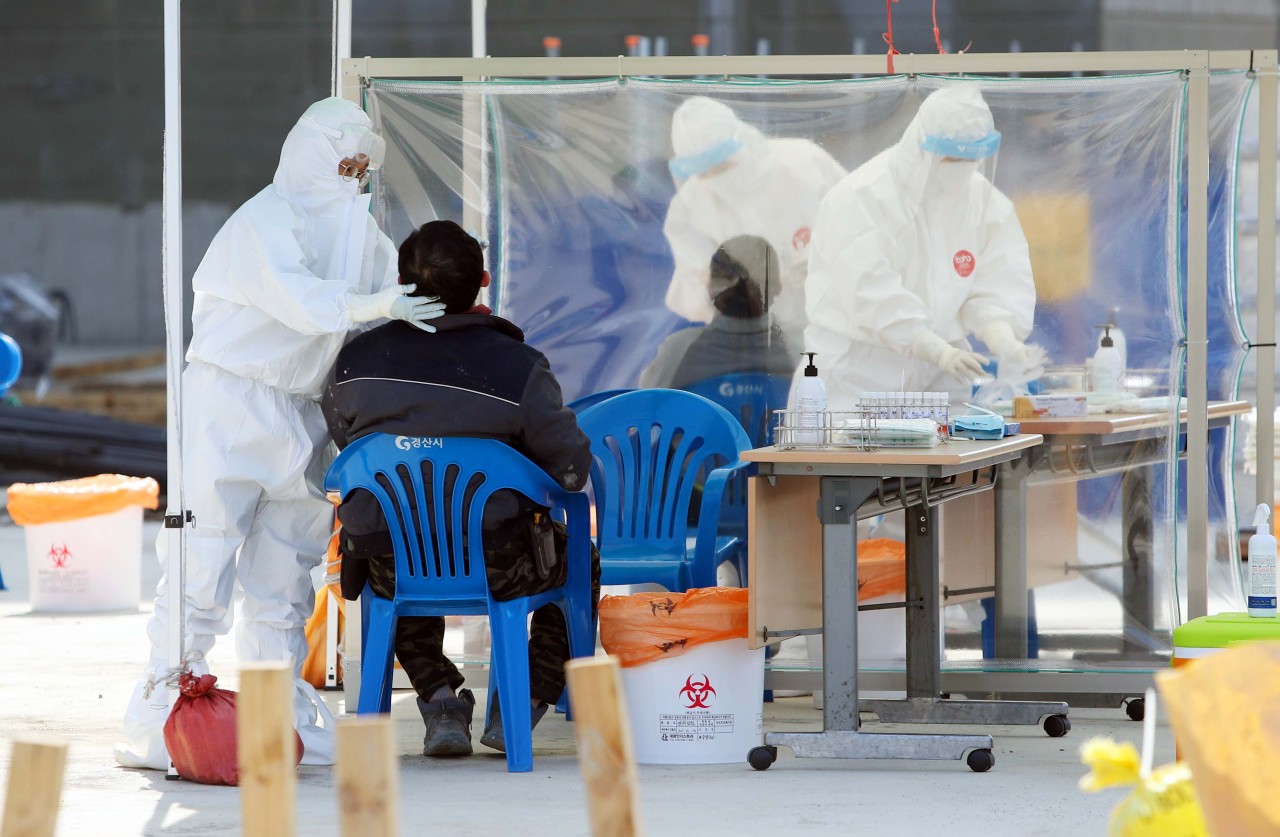South Korea will extend its social distancing rules in place for two more weeks, as the country reported the highest daily addition of COVID-19 cases in three weeks.
Prime Minister Chung Sye-kyun said in a meeting Friday that the government will continue to impose Level 2 social distancing rules in Greater Seoul, which includes Incheon and Gyeonggi Province, until March 28. Level 1.5 rules will be maintained throughout the rest of the country, while the ban on private gatherings of five or more people remains in place.
“The number of new cases has stayed in the 300s and 400s for eight consecutive weeks, and the situation remains stubbornly stagnant,” Chung said. “If we pull back at this moment, the dam against the virus we established with much effort could collapse at once.”
Chung added the government will designate the next two weeks as a special response period to inspect the virus control situation at multiuse facilities and industrial sites with workers of foreign nationalities.
“Cluster infections continue to be reported from various places including industrial sites, indoor athletic facilities, family gatherings and hospitals,” Health Ministry official Yoon Tae-ho said in a press briefing Friday.
“From receiving opinions from related agencies, local governments and experts, there was a consensus that current social distancing rules and virus control measures should be maintained to seamlessly carry out the vaccination program and prevent the fourth virus wave.”
The country on Friday reported 488 new COVID-19 cases – 467 locally transmitted and 21 imported from overseas – raising the overall total to 94,686, according to the Korea Disease Control and Prevention Agency. The latest addition is slightly up from 465 cases reported a day earlier.
Korea also added 10 more deaths from the virus, raising the number to 1,662. COVID-19 patients in serious or critical condition stayed unchanged at 127. The country conducted 64,065 tests Thursday, down from 67,848 checks done Wednesday.
The country has been struggling to flatten the virus curve with the number of new daily cases staying high on the discovery of new cluster infections and increased travel due to warmer weather, officials said.
While officials are working to officially introduce a new four-tier social distancing system by the end of this month, health authorities are hesitant to implement it, saying the new system will only be imposed after virus cases fall in significantly.
Out of 21 new cases uncovered from overseas arrivals, patients from Asian countries other than China accounted for eight, followed by the Americas with six, Europe with five and Africa with two.
All incoming travelers are required to submit negative results of polymerase chain reaction tests upon arrival or they will be barred from entering. The measure is in place as Korea also faces worries of an influx of COVID-19 variants from overseas.
Authorities said Thursday the country has so far detected 75 cases of emerging variants of COVID-19 since December. Out of the total, 68 cases were found to be a variant traced to California.
The new mutations are labeled as “emerging” as it is not fully indicated whether they are more deadly or transmissible from the variants currently circulating around the world.
They are different from the three best-known variants stemming from Britain, South Africa and Brazil, 182 cases of which have been identified in Korea so far. The ban on passenger flights from Britain in place since Dec. 23 has been extended for three additional weeks until April 1.
As a means to overcome the pandemic, Korea has launched a nationwide vaccination campaign with doses obtained from overseas pharmaceutical firms. Since Feb. 26, 546,277 people have been given their first jabs of the vaccines from either AstraZeneca or Pfizer, with 42,527 more administered Thursday.
The number of those reporting adverse symptoms after taking the vaccines reached 7,648, up 789 from a day earlier.
By the end of Thursday, 15 people had died after receiving the vaccine, with eight of the deaths confirmed as being unrelated to the vaccine. Authorities are still investigating the other seven cases.
By Ko Jun-tae (
ko.juntae@heraldcorp.com)








![[Today’s K-pop] Blackpink’s Jennie, Lisa invited to Coachella as solo acts](http://res.heraldm.com/phpwas/restmb_idxmake.php?idx=644&simg=/content/image/2024/11/21/20241121050099_0.jpg)